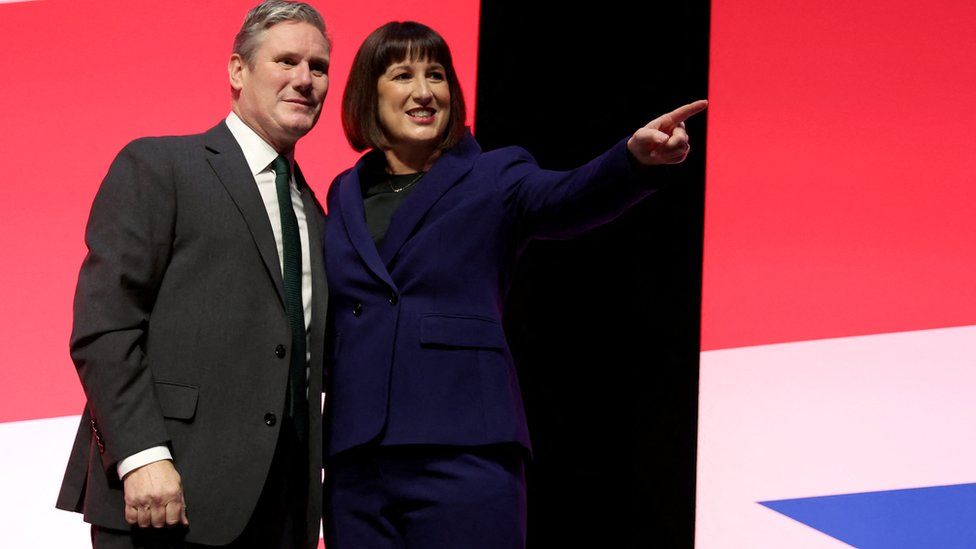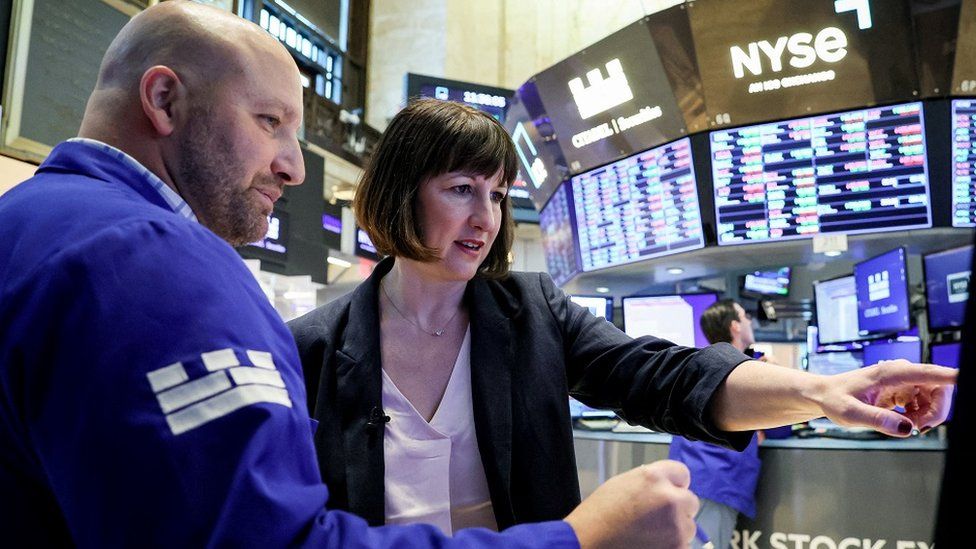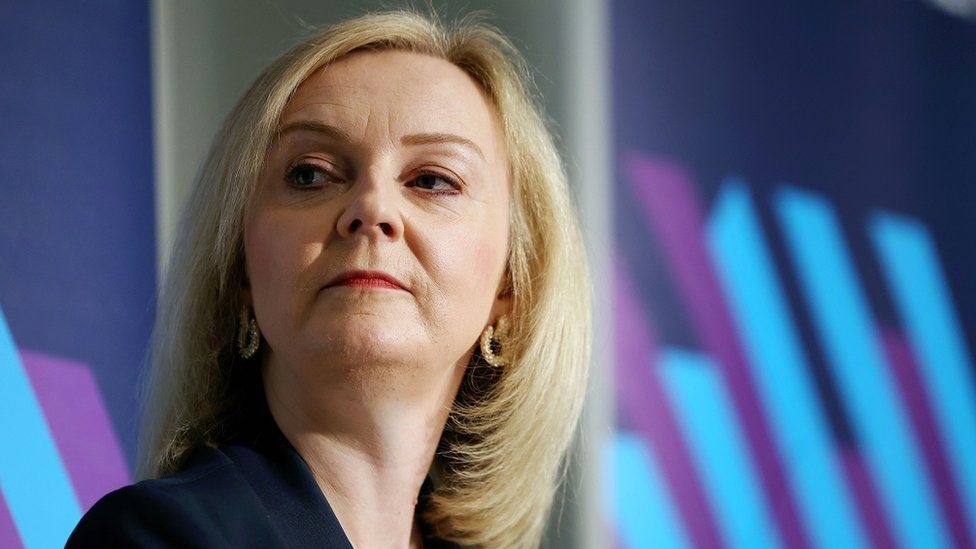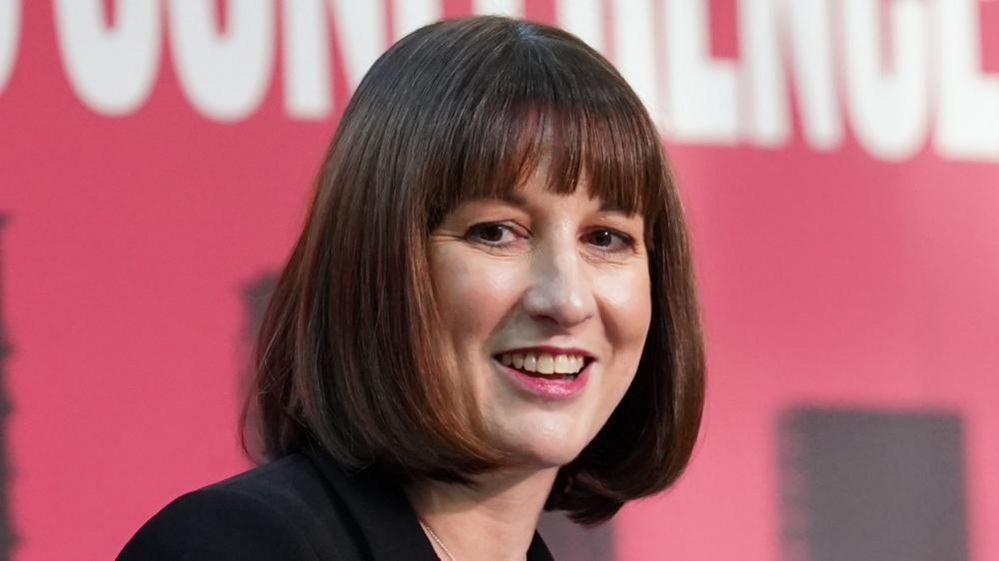Labour plans to fight next election on economy
This video can not be played
To play this video you need to enable JavaScript in your browser.
Labour says it will fight the next election on the economy after the shadow chancellor revealed policies to bring in an “era of economic security”.
Stepping on to traditional Conservative election ground, Rachel Reeves promised to cut waste and drive growth in her speech to Labour conference.
“Responsibility must always come first,” she said.
And she unveiled plans aimed at speeding up projects like battery factories and 5G infrastructure.
- Labour urges ministers to ‘clean up’ Covid contracts
- Labour pledges watchdog power after Truss mini-budget
- Labour rules out wealth tax if party wins power
She told Labour conference: “There is no hope without security, you cannot dream big if you cannot sleep in peace at night.”
Ms Reeves said Labour would “wage a war against fraud, waste and inefficiency”, including a “crackdown on Tory ministers’ private jet habit”.
Labour was “ready to serve” and “ready to lead”, she added.
She said that “taxpayers’ money should be spent with the same care with which we spend our own money” but that under the Conservatives it had been “treated with disrespect”.
Labour would seek to “slash government consultancy spending”, she said, adding that the cost of hiring consultants has “almost quadrupled in just six years”.
There had been calls from Labour delegates to reinstate the northern leg of HS2 – scrapped by the prime minister last week.
Ms Reeves made no commitments to rebuild the high-speed line but said a Labour government would commission an independent inquiry into the project.
There was also a pledge to increase the national minimum wage “taking into account the real cost of living,” without specifying the amount.
Profile push
Labour has made a concerted effort over recent months to raise Ms Reeves’s profile, given she would be not only at the heart of a Labour government, but their election campaign too.
Internally, Labour figures say that taking the fight to the Conservatives on the economy rather than, say, the NHS, is a measure of their political confidence.
One senior source said that elections are “won and lost on the economy”, adding: “We’re not in our safe zones any more, we’re on their turf.”
Ms Reeves speech was bookended by glossy videos and a lavish introduction by Cameron-era government advisor Mary Portas.
Ms Portas declared Ms Reeves would be the best-qualified chancellor ever.
Ms Reeves was also labelled “a serious economist” who “understands the big picture” by former Governor of the Bank of England Mark Carney, in a video played after the speech.
And the shadow chancellor’s fiery rhetoric repeatedly brought the audience in the conference hall to its feet.
Her vow to levy VAT on private school fees prompted a prolonged bout of whooping in the hall, as did her refrain – used more than once in the speech – that Labour is “ready to serve” and “ready to lead.”

Much of the speech was focused on how Labour would achieve growth in office, with Ms Reeves saying Labour would overhaul planning rules to speed up green energy, battery factories and 5G projects.
Under plans announced on Monday, 300 new planners across the public sector would be hired and planning guidance to speed up the process re-written.
Decision times for major projects have increased by two-thirds since 2012, to four years according to Ms Reeves, and economic growth and net zero considerations need to be factored in.
Earlier, Shevaun Haviland, Director General of the British Chambers of Commerce, welcomed the proposals, saying long-term investment in infrastructure was a “key ingredient to get our economy back to growth”.
“We are pleased to see a future Labour government would support the building of large-scale factories and improve our digital infrastructure, such as 5G connectivity,” she said.
Unions broadly welcomed the speech, with Unison general secretary Christina McAnea praising Ms Reeves’ “compelling vision”.
Momentum, the left-wing pressure group set up to support former leader Jeremy Corbyn, said the speech Labour’s plans were “disappointing” and failed to “rise to the huge crises facing Britain”.
Ms Reeves also proposed establishing an anti-corruption commissioner aimed at recovering money lost as a result of fraud and waste during the pandemic.
Conference showdown
On Monday, the Labour leadership was for a showdown with Unite – historically the party’s biggest financial backer – over the union’s call to nationalise critical infrastructure, starting with privatised electricity and gas networks.
Delegates will vote later on whether the party should adopt the policy, which is opposed by Ms Reeves and Labour’s leader Sir Keir Starmer.
The union’s motion calls for UK energy to be brought into public ownership, and also to commit to deliver infrastructure projects, including HS2.
Unite leader Sharon Graham accused the Labour party of being “timid”.
“Labour need to act more like a 1945 transformative government,” she told the Today programme.
Ms Graham said she thought the shadow chancellor was “doing a good job, but I don’t think we’re going to get the type of growth they’re talking about quickly”.
It is time “to look at the economy differently”, she said.

Sign up for our morning newsletter and get BBC News in your inbox.

Related Topics
- Rachel Reeves
- Labour Party Conference
- Labour Party
- Infrastructure
- Coronavirus
-
Labour unveils Biden-inspired economic strategy
-
24 May

-
-
Labour urges ministers to ‘clean up’ Covid contracts
-
8 February 2021

-
-
Labour pledges watchdog power after Truss mini-budget
-
22 September

-
-
Labour rules out wealth tax if party wins power
-
27 August

-
Published at Mon, 09 Oct 2023 13:05:16 +0000
